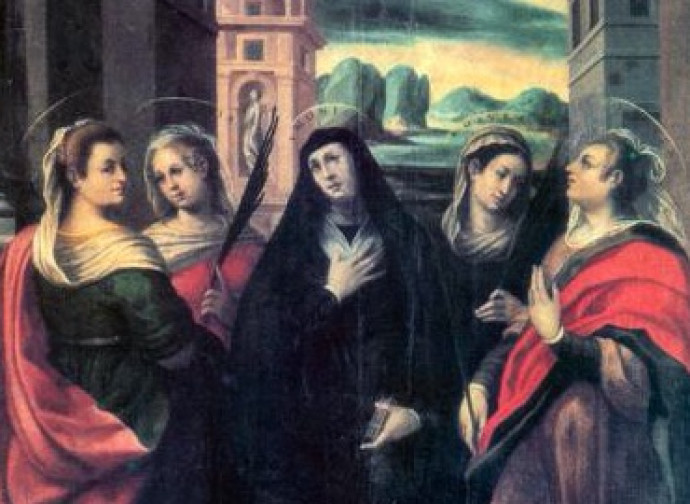Saints Fusca and Maura, martyrs
According to the most renowned Passio, Fusca was born into a pagan family of Ravenna. When she was about 15, she became interested in the Christian faith. She confided her desire to learn more about Christianity to Maura, her affectionate nurse, who encouraged her.

According to the most renowned Passio, Fusca was born into a pagan family of Ravenna. When she was about 15, she became interested in the Christian faith. She confided her desire to learn more about Christianity to Maura, her affectionate nurse, who encouraged her. The two women went together to a priest named Ermolaus, who educated them in the main truths of faith and baptised them. Informed of the baptism, Fusca's father vainly tried to pressurise her to abjure. This was reported to the prefect Quintianus, but the soldiers sent to capture Fusca and Maura were dissuaded from their intent by the sight of an angel with a sword drawn to protect the two Christians.
Later on, Fosca and Maura surrendered spontaneously to the imperial authorities, and the fact that the Passio indicates the name of Quintianus, the same as that of the proconsul responsible for the martyrdom of Saint Agatha, has led to dating their martyrdom to the mid-3rd century, during the persecutions ordered by the emperor Decius (249-251). Hagiographic sources report that the two Saints were tortured and killed by the sword.
Their bodies, transported by sea, were found as late as the 11th century in Libya, near Sabrata, which had long been under Muslim domination. For this reason, and also because of their names [both meaning "Dark One"] another tradition indicates that the two martyrs actually lived in Tripolitania. The same bodies were then taken by a Christian to the Venetian island of Torcello, where a 9th-century church was dedicated to Saint Fusca, then rebuilt in its current appearance following the arrival of the relics. Today, the remains of Saint Maura are kept in the church of Santa Maria di Lourdes in Milan.


